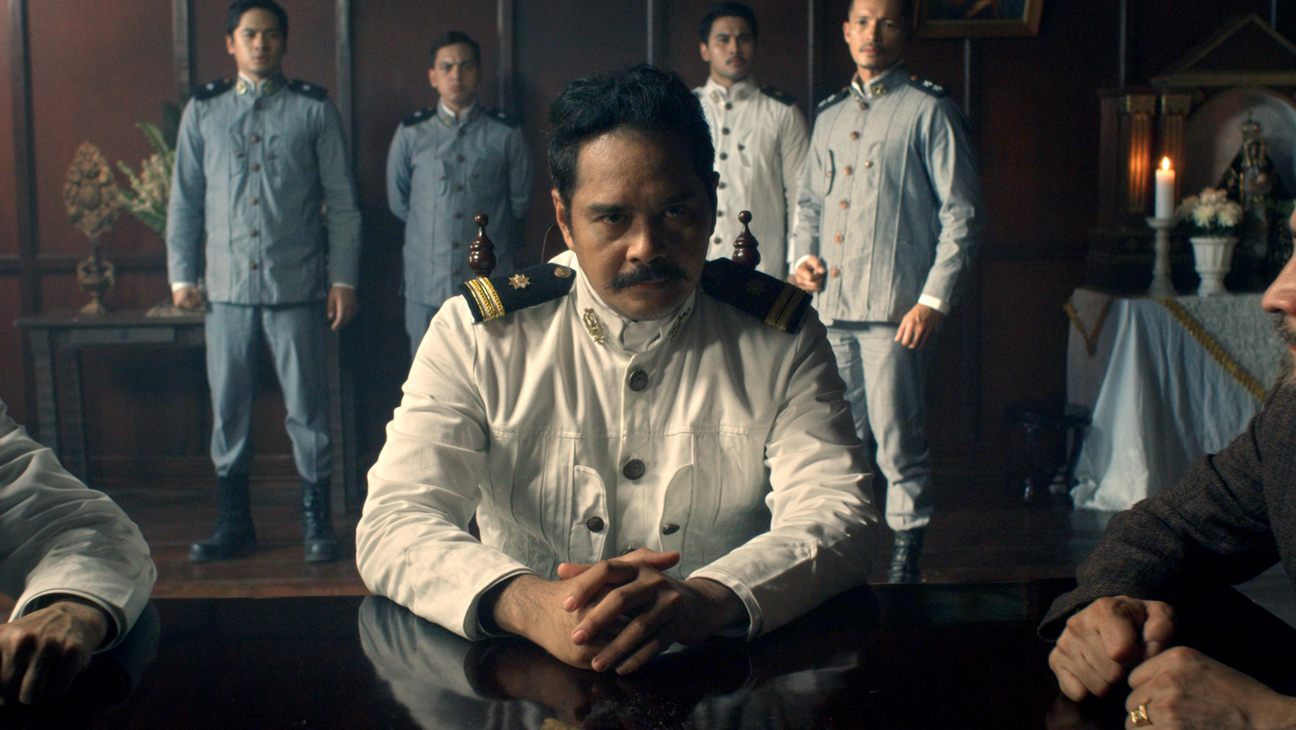Written by Precious Ringor
As a young Filipino-American artist, it’s exciting to be able to have an excuse to watch Filipino movies for work. Even more so, I was thrilled when I was asked to write about TBA studios and their recent partnership with Laurel Channel. Talking to Cindy Sison, who is currently the Head of International Sales, Distribution and Acquisitions at TBA – was a great opportunity for me to, not only learn about what goes on behind the scenes of film distribution, but also to meet another Filipina in the industry.

Cindy Sison of TBA Productions
Instead of the usual Zoom interview, Cindy and I conversed over the phone and it was very much like I was speaking to a tita [aunt] in the Philippines. It felt good to be able to speak Tagalog. Cindy was kind, down-to-earth, and easy to talk to.
TBA studios is a Philippines based independent film production company composed of Tuko Film Productions, Buchi Boy Entertainment, and Artikulo Uno Productions. TBA boasts of showcasing award-winning Filipino films that “push and break boundaries.” They have made several film festival runs and received numerous accolades worldwide. Cindy says the reason behind their success is that they focus on award-winning films and films that celebrate 100 years of Philippine Cinema.
Born out of a need to educate the youth, TBA produces primarily biographical dramas. Films that spotlight stories of Filipino war heroes like Bonifacio: Ang Unang Pangulo, Heneral Luna, and Goyo: The Boy General. Most of their films aim to help younger Filipinos understand their history and where they came from. When I was going to school in Manila, I remember learning Philippine history in Sibika at Kultura [Civics and Culture]. But I also remember my dad having to discuss what history books and lesson plans couldn’t go over in detail, such as stories of our national heroes, their lives and the sacrifices they’ve made for the liberation of future generations.
The films that TBA produces today weren’t available during my time in school. Now that I’m older, I’ve seen the impact these films have made on Filipino youth of today—the activists, the outspoken, the loud and proud. We echo Heneral Luna’s (one of the generals who lead the Philippines to independence) battle cry, “Bayan o Sarili!” [country or self] as we confront modern day issues of corruption, climate change, and crippling poverty.
Heneral Luna is one of mine and my dad’s favorite movies of all time, and is one of the many films being featured on Laurel Channel. Award winning, critically–acclaimed, and a box office hit, Cindy calls it a hallmark of TBA’s creations, not to mention it’s currently the largest grossing historical film in the country. And now it’s being used as a teaching aid for history and culture classes.
We started talking about the ‘history of filmmaking in the Philippines, particularly the abundance of films that were produced in the country during American colonization. Take for example, The Real Glory, which was filmed in Mindanao, south of the Philippine archipelago in 1939. “When they brought cameras and numerous gadgets to our country, we learned how to film,” explains Cindy “Many Filipinos were fascinated by the life of a filmmaker and they traveled to the U.S. for sheer adventure.”
Although the company has only been running for seven years, they have been relentless in their commitment to nurture, not just prominent filmmakers, but also ones who are on the rise. Cindy asserts that filmmakers like Mikhail Red, Jerrold Tarog, and Isabel Sandoval are the key to spreading Filipino talent across an international audience.

Filipino American filmmaker Isabel Sandoval.
“Our goal is to give them what I call an ‘Oscar-push’, acting as a sort of campaign manager, giving them the push and support they need to hopefully get that esteemed recognition.”
As we spoke with pride about our heritage as Filipino women, we reflected on the current backlash Asians and Asian Americans have been experiencing over the last year. This isn’t the first time Filipinos have faced racism in the States. From the Watsonville and Salinas riots in the 1930s to the depiction of Filipinos as being inferior in American propaganda throughout history, we are no strangers to anti-Asian sentiments.
“It’s hard to hear about these attacks. Right now, our community is hurting not only with COVID-19, but also with hate and prejudice.”
Cindy’s own father was a doctor, who is known by many in the Filipino migrant community. She talked about her father and how his hard work and bright charismatic personality landed him a residency, which is rare for a foreign graduate.
“Considering the fact that more than a third of our countrymen are heroes, it hurts to hear ‘go back to where you came from.’ Especially when our people have come to America with the purpose of sacrificing themselves for the greater good.”
Hearing this statement hits close to home. As an immigrant myself, feeling unwanted and worthless is something I know all too well. I’ve heard this statement said to me, my family, and friends too many times. Which is why films like the ones made by TBA Studios are so important. They have the power to influence one’s perception. They can be used as an educational tool and have the capacity to encourage those who watch to show empathy and understanding.
“I think another common theme in our films is that they remind our audiences of hope, of home. Our films [reflect] the Filipino culture and the sacrifices we make for the sake of our families. Many don’t realize this, but our number one export is humans – OFWs [Overseas Filipino Workers]. For decades, families have been separated so that their children could have better lives.”
As my mom was working abroad for most of my childhood, this was something I could relate to. I think about my own family and upbringing, and about what kind of impact these films could make about that experience.
“My family was fortunate enough that we were able to move abroad right before martial law descended in the Philippines,” Cindy explains, “so we never had to experience being separated from each other.”
She’s referring, of course, to the infamous Filipino President Ferdinand Marcos, who declared Batas Militar [martial law] as a response to growing civil strife from what he perceived as a threat of takeover by the Communist Party of the Philippines (CPP-NPA). Many refer to this time as a dark chapter in our history, marred with countless human rights violations during which thousands of people were subject to torture. To this day, Filipinos harbor immense hatred for Marcos, calling him a dictator and a murderer. The People Power Revolution ended Marcos’ twenty year rule in 1986, making him the first and last president to serve more than two terms in office.
As our call came to an end, Cindy and I discussed adjustments their company has had to make with COVID-19 restrictions.

Heneral Luna movie still.
“In the past, cinemas all over the world have supported our films. People came to screenings and invited their families and friends to watch. As we make a transition to virtual cinemas, I hope we can have the same support online. I mean it’s still a bargain isn’t it? Even with drive-in theatres and private cinema bookings, who knows when we’ll all fully come back.”
TBA studios is currently prepping for the worldwide release of TBA Play, the company’s premium video-on-demand platform. Likewise, a number of their films are now featured on Laurel Channel. From documentary films like Sunday Beauty Queen to neo-noir thrillers like Neomanila.
Amidst the disheartening violence against the Asian community, TBA’s films are vital to the Filipino and Filipino-American communities because they teach us about our history; it tells us stories of our past, stories that make us who we are today. The partnership between Laurel Channel and TBA is not only another platform for Filipino artists to reach an American audience, it’s also paving the way for more diversity and inclusion in international cinema. And my hope is that even after this pandemic is over, Asian voices will still be heard—and films like the ones featured in our channel, could be used as a lens through which we could heal the world.

